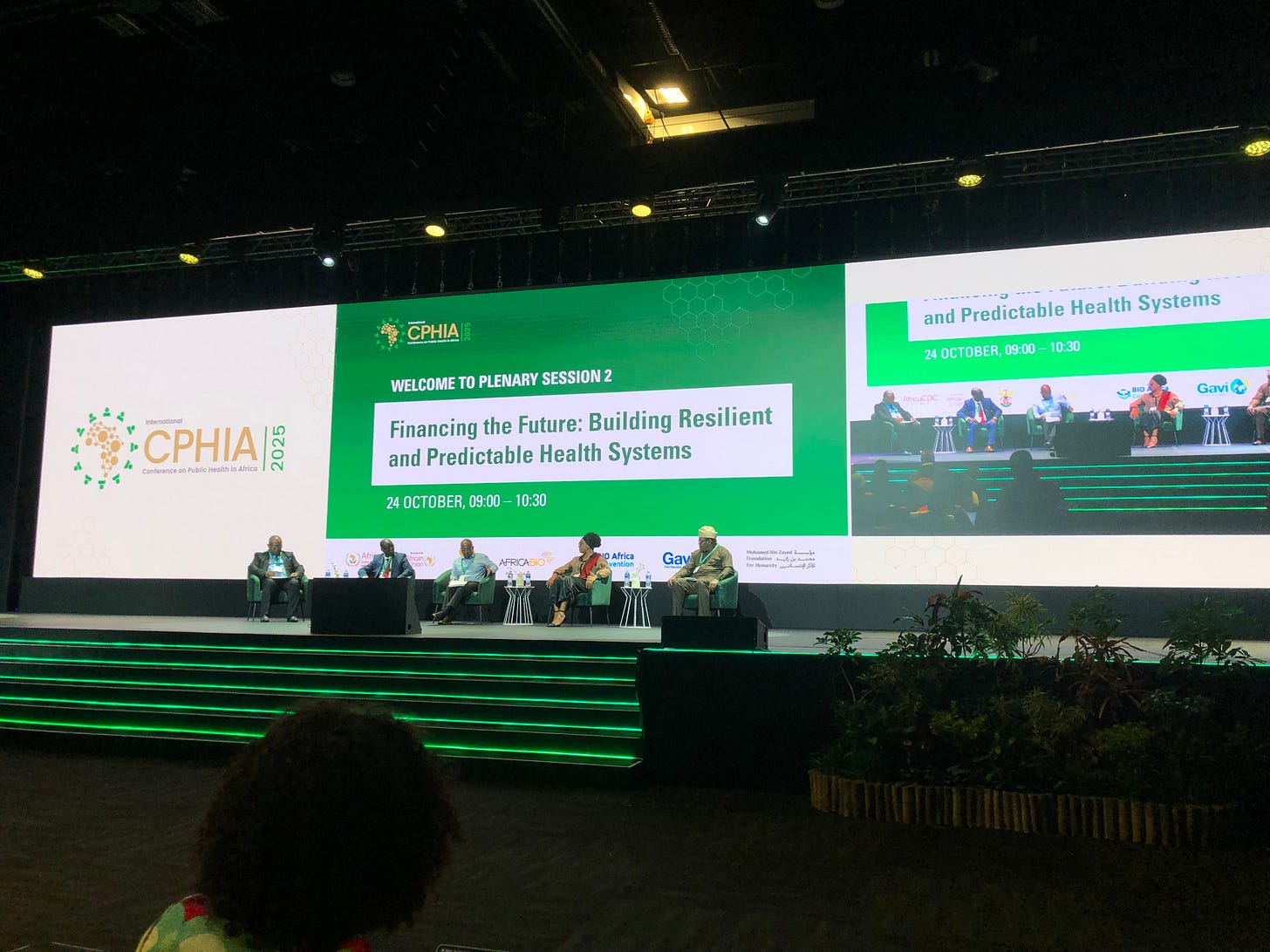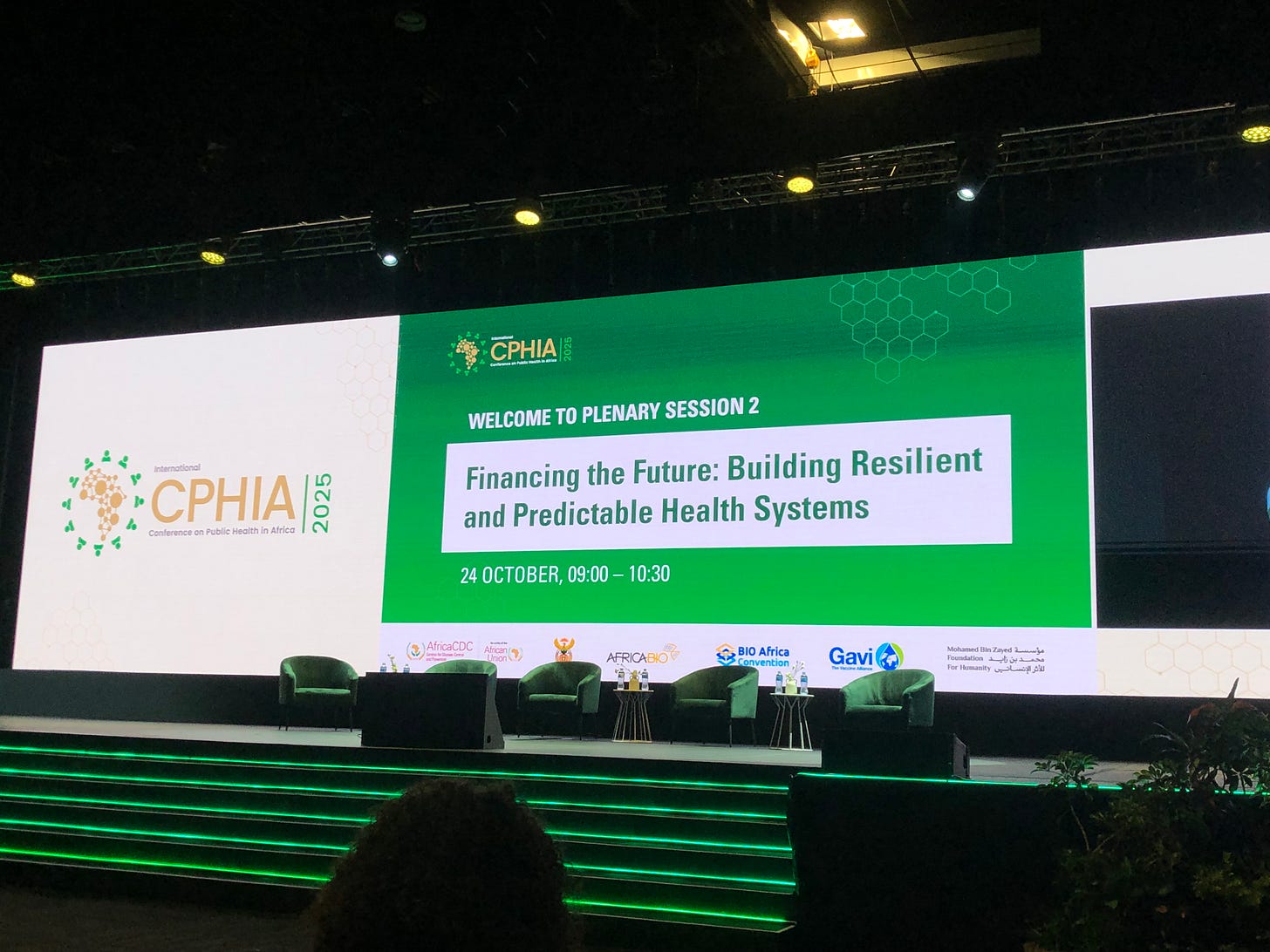Financing the Future: CPHIA Plenary Calls for Self-Reliant Health Systems
Chioma Nnamani
Africa’s health financing must stop dancing to someone else’s drum. This was the rallying call during the second plenary at the 4th Conference on Public Health in Africa (CPHIA), titled “Financing the Future: Building Resilient and Predictable Health Systems,” where public health leaders debated how Africa can fund its health future on its terms.
Dr. Ifedayo Adetifa, CEO of FIND, reflected on what it would take to truly rebuild Africa’s health systems from within.
“If we could press the reset button, I would start by addressing what I consider to be a fundamental truth, that no country can outsource its health security, or indeed its health care system to others to run, to contribute, or to determine.”
~ Dr. Ifedayo Adetifa
He argued that if Africa is to achieve universal health coverage and be ready for future pandemics, it must invest in its own capacity to detect, respond, and deliver care. “Without testing, there is no treatment, no prevention, and no data to drive decisions,” he said, urging governments to see diagnostics not as a cost but as an investment in economic sovereignty.
Adetifa’s analogy of dancing to a new drumbeat struck a chord in the room. He urged countries to be guided by their own national priorities, not by external agendas because only those who wear the shoe know where it hurts.

Picking up the baton, Dr. Nkem Okeke, Founder and CEO of Medicalincs and BIND Associates, brought the private sector lens. With development assistance declining, she argued for smarter, value-based financing and public–private partnerships that work for Africans.
Reminding the audience that while the private sector’s goal is to make profit, “it should not be at the expense of somebody’s life.” Pointing to trends in health investment across Africa, she observed that much of the funding still flows into insurance, diagnostics, and retail pharmacy, which are often driven by external priorities rather than African realities. For Okeke, private investment in health must align with the continent’s needs, not just market opportunities.
Dr. Folorunso Fasina, the country team leader for the Food and Agriculture Organisation (FAO) in South Sudan, drew attention to the climate crisis as Africa’s most urgent and underfunded health challenge. Through the story of a farmer in East Africa impacted by drought, he traced the link between extreme weather, food insecurity, animal health, and antimicrobial resistance.
Drought reduces crop yields, causing food insecurity and pushing wildlife closer to human settlements, which increases interactions between wild and domestic animals. Indiscriminate antibiotics use in livestock fuel antimicrobial resistance (AMR). This cycle undermines human and animal health and deepens economic losses. Fashina stressed that the solution lies in integrated, climate-resilient health systems that unite agriculture, environment, and health sectors under one coordinated plan, preventing crises before they erupt.
Emphasising the urgency of action, he noted: “Climate change is not just a separate environmental issue. It is a single greatest threat multiplier to health and economic security in Africa. We need to address it through a One Health nexus, which is not an expense but the most critical investment we can make in our continent’s future”


